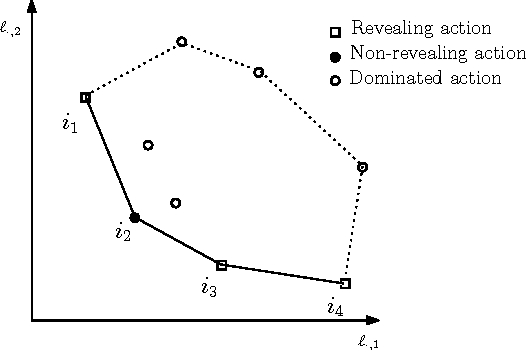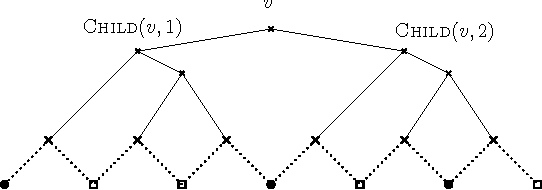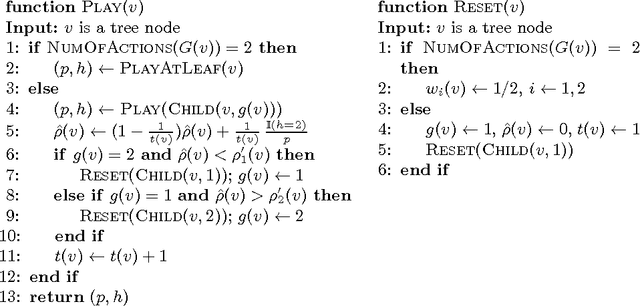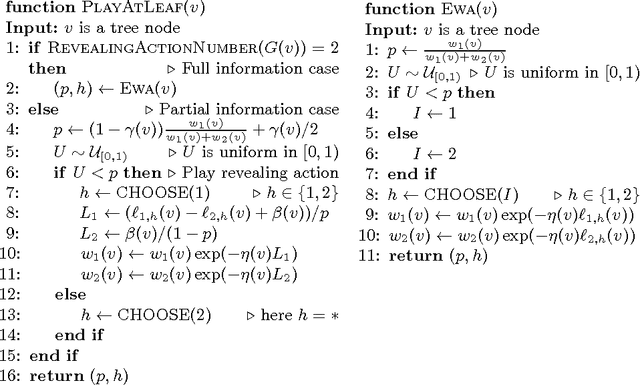Toward a Classification of Finite Partial-Monitoring Games
Paper and Code
Oct 11, 2011



Partial-monitoring games constitute a mathematical framework for sequential decision making problems with imperfect feedback: The learner repeatedly chooses an action, opponent responds with an outcome, and then the learner suffers a loss and receives a feedback signal, both of which are fixed functions of the action and the outcome. The goal of the learner is to minimize his total cumulative loss. We make progress towards the classification of these games based on their minimax expected regret. Namely, we classify almost all games with two outcomes and finite number of actions: We show that their minimax expected regret is either zero, $\widetilde{\Theta}(\sqrt{T})$, $\Theta(T^{2/3})$, or $\Theta(T)$ and we give a simple and efficiently computable classification of these four classes of games. Our hope is that the result can serve as a stepping stone toward classifying all finite partial-monitoring games.
 Add to Chrome
Add to Chrome Add to Firefox
Add to Firefox Add to Edge
Add to Edge